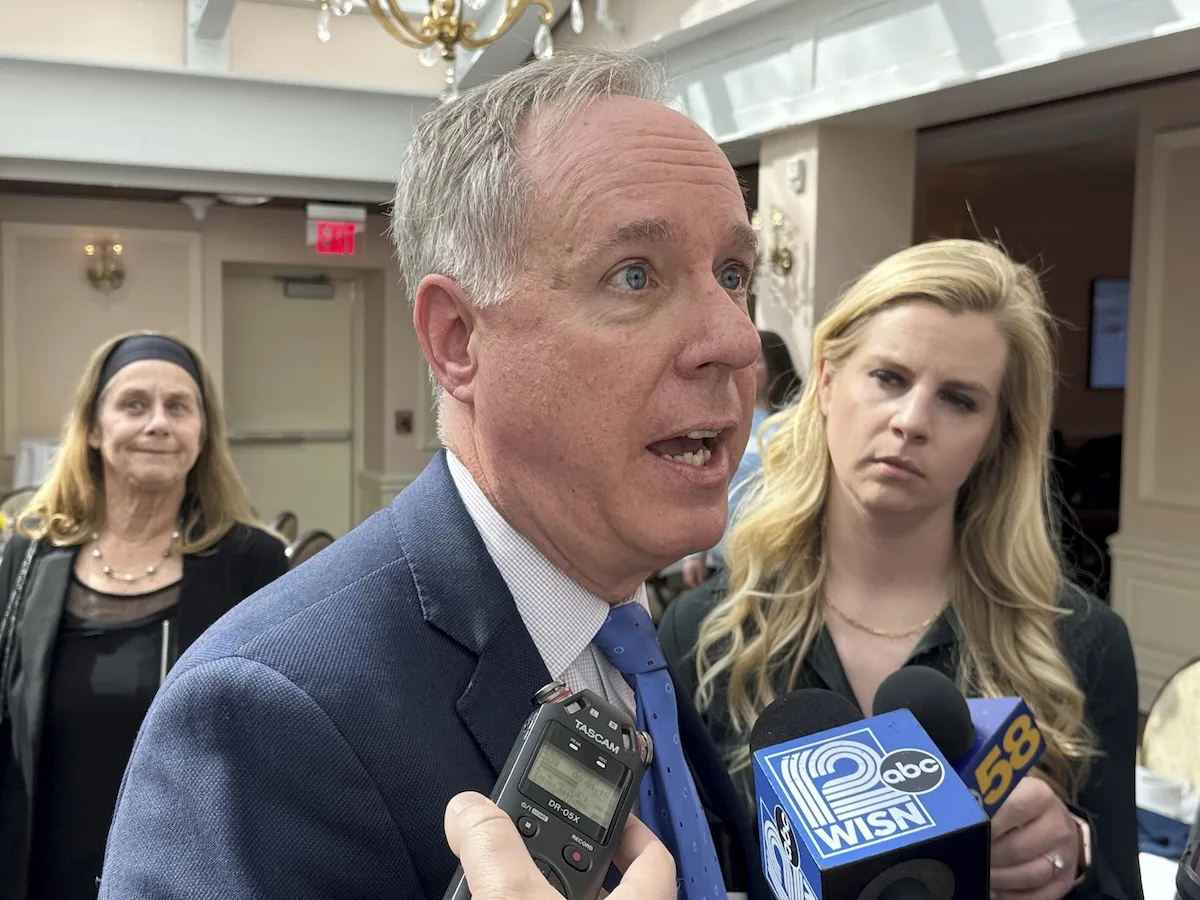
Wisconsin Republican Assembly Speaker Robin Vos (AP Photo/Scott Bauer)
A new study found that women between the ages of 18-44 in Wisconsin reported lower quality of care and less access to birth control in 2022, after the US Supreme Court overturned Roe v. Wade.
Wisconsin’s legislative session ended last week, but before it did, state Republicans refused to hold a vote on a bill that would have created a statutory right to contraception for Wisconsinites and codified health care providers’ right to provide birth control.
The bill, called the Right to Contraception Act, was co-authored by state Senate Minority Leader Dianne Hesselbein (D-Middleton) and Sen. Lisa Subeck (D-Madison), who fear Wisconsinites could lose access to contraception amid continuing state and national turmoil surrounding reproductive rights.
While abortion access has remained at the forefront of the reproductive rights battle after the 2022 US Supreme Court ruling striking down Roe v. Wade, which provided a federal constitutional right to abortion, Hesselbein said that Republicans’ efforts to restrict bodily autonomy extend far beyond abortion alone.
Alabama’s state Supreme Court made headlines last month for a controversial decision stating that embryos should be considered “‘children,” a ruling that threatened access to in-vitro fertilization (IVF) treatments.
In Wisconsin, lawmakers have battled over whether patients should be able to access birth control via a pharmacist instead of a primary care physician.
“The last thing we can afford to do is remain complacent,” Hesselbein said during a press conference earlier this month, urging Republicans to hold a vote on the bill. “We cannot wait until it is too late to take action. We must take action to protect contraception access and protect people’s medical freedom.”
Less access to birth control after Roe falls
In Wisconsin, policy changes after the fall of Roe have had a notable impact on birth control access. A study from the Guttmacher Institute surveyed women between the ages of 18-44 in Wisconsin, Iowa, Arizona, and New Jersey in 2021 and 2022—after the fall of Roe—about their access to contraceptive care. In all four states, women surveyed reported lower quality of care and less access to birth control in 2022.
Subeck expressed concern about her Republican colleagues’ opposition to codifying contraception in Wisconsin—despite February polling by Americans for Contraception indicating that the right to contraceptive freedom is important to 88% of US voters.
“I’ve sat in hearings where people have testified, claiming that contraception has ruined humanity, has somehow impacted the family unit, some claiming that contraception is the same as abortion because they want to do away with contraception,” Subeck said of the bill’s opponents.
‘We need to keep working’
Despite presenting Republican colleagues with a petition signed by more than 15,000 Wisconsin residents in support of the bill and sharing personal stories from state residents who benefit from contraception access, Democrats were unsuccessful in pushing through a vote before the legislative session ended.
Hesselbein expressed frustration over Republicans’ inaction and urged colleagues to continue fighting for access to birth control, regardless of the session’s end.
“We need to keep working,” she said during a press conference. “I’ve never known of another job where you stop working in March and you’re still continuing to be paid April, May, June, July, August, September, October, November, December, until January. That is not okay.”
Politics

Biden makes 4 million more workers eligible for overtime pay
The Biden administration announced a new rule Tuesday to expand overtime pay for around 4 million lower-paid salaried employees nationwide. The...

Biden administration bans noncompete clauses for workers
The Federal Trade Commission (FTC) voted on Tuesday to ban noncompete agreements—those pesky clauses that employers often force their workers to...
Local News

Readers Poll: Top Bowling Alleys in Wisconsin
Looking for the best bowling in Wisconsin? Look no further! Our readers have spoken in our recent poll, and we have the inside scoop on the top...

8 Wisconsin restaurants Top Chef judges are raving about
Top Chef’s 21st season is all about Wisconsin, and on-screen, it’s already apparent that the judges feel right at home here. But, while filming in...





